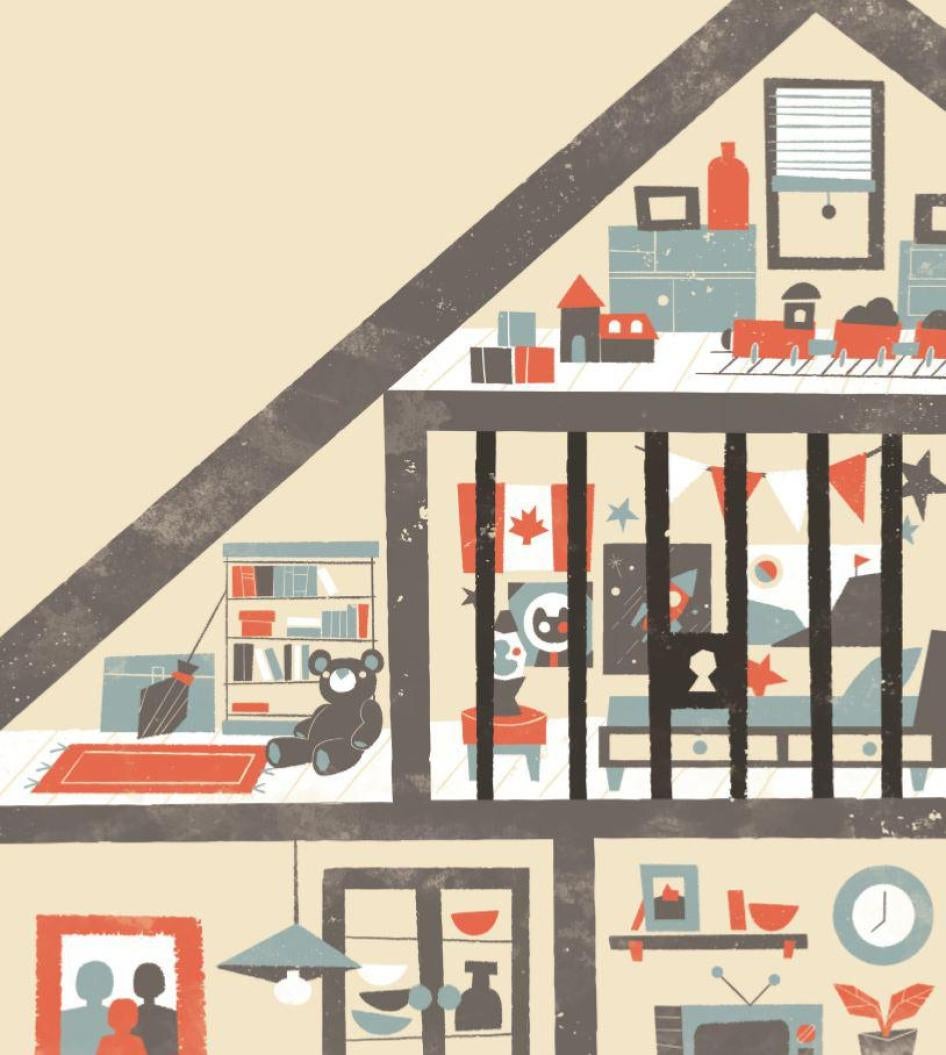Daevon was just four months old when he entered Toronto’s Immigration Holding Centre in October 2014. He spent six months there. Born in Canada, he’s a Canadian citizen but was there because authorities had rejected his mother’s refugee claim and were seeking to deport her.
Immigration detention is no place for any child, let alone a newborn.
Daevon’s mother, Abigail, tried to get the Canada Border Services Agency (CBSA) to consider the effects on Daevon when they reviewed her detention order, but officials said, “Daevon is not detained;” in their view, he was simply visiting her and could leave at any time. “But I’m his mom … he’s breastfeeding, how can he leave?” she pleaded.
Dozens of Canadian citizen children like Daevon stay in immigration detention facilities each year. Technically they’re not detained; their parents are. CBSA views them as guests staying with their parents in order to keep the family together.
If this policy is designed to protect families, in practice it does anything but, according to a new report by the University of Toronto’s International Human Rights Program.
For example, while Canadian children face the same detention conditions as non-Canadian kids, they don’t benefit from the same safeguards, like detention review hearings. CSBA has no legal obligation to look out for Canadian children’s best interests, something that should be an overriding consideration at all times. It doesn’t have to notify the Canadian Red Cross when Canadian children enter immigration detention. And it doesn’t even keep complete records of Canadian kids in its facilities. Canadian children, the report says, “are legally invisible.”
Of the 227 Canadian children the Toronto Immigration Holding Centre is known to have housed between 2011 and 2015, nearly one-third stayed a month or longer. One Canadian boy spent 803 days behind bars.
Research from Canada, Australia, Europe, and the United States show immigration detention is incredibly destructive: Children react to even short periods with “extreme distress,” become aggressive, have trouble sleeping, and suffer loss of appetite. And they experience this distress for months after leaving.
Separating children from their parents isn’t the answer; splitting families is even worse for children’s well-being.
It doesn’t have to be this way. Probation-style reporting, financial deposits, and – in exceptional circumstances – electronic monitoring of parents are all proven alternatives to detention and family separation, and should be used for families with non-Canadian children as well.
Canada’s federal government and CBSA say they want to reform the immigration detention system and protect kids.
They should move quickly to do so.










